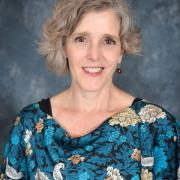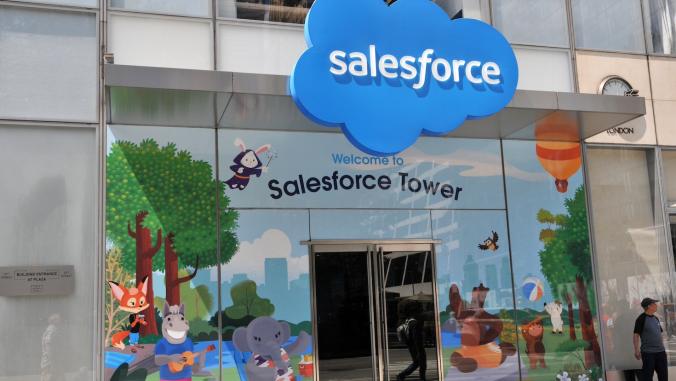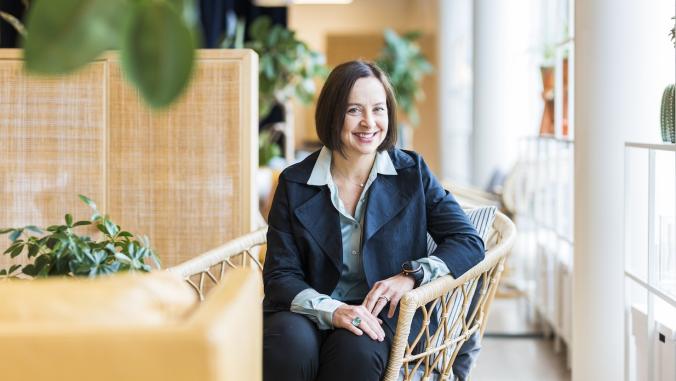Success as an entrepreneur often comes down to who you know — regardless of gender or racial ethnicity.
That’s one underlying motivation for the Impact Accelerator, a leadership training, business development and mentorship network that is part of Apple’s $100 million Racial Equity and Justice Initiative. After sorting through more than 100 applications, the Accelerator team Tuesday announced its inaugural cohort of 15 organizations — all of whom will have an opportunity to become Apple suppliers after the end of the program.
The effort, launched earlier this year, will provide three months of "intense" resources and support for companies founded and fronted by Black, Brown, Native American or Indigenous entrepreneurs. These are individuals who might not typically be supported by the traditional U.S. startup ecosystem — less than 4 percent of funding, for example, goes to Black founders, and the numbers are even smaller if you’re a Black woman.
Apple’s accelerator program specifically caters to climate tech ventures, companies focused on a range of solutions — from deploying renewable power to improving energy efficiency, advancing green chemistry or innovating in the field of recycled materials and circularity. The notion is that Black, Indigenous and people of color (BIPOC) communities that are disproportionately affected by climate change should be principal among those who benefit from addressing it.
"The economic agenda of doing right by the planet is one that should be shared," said Lisa Jackson, vice president of environment, policy and social initiative. From Apple’s standpoint, Jackson sees the program as an opportunity to broaden the ecosystem of suppliers that can help the giant tech company achieve its own aggressive climate commitments. Last summer, Apple said it's aiming to achieve carbon neutrality across its entire supply chain and product life cycle by the end of 2030 — it’s one of the few companies of any size that has made set such a far-reaching target.
While the details about what resources Apple will provide to these ventures is sketchy, it includes ongoing access to Apple experts, and Jackson will be personally involved. The goal is also to encourage relationships between the participating ventures — and alumni as the program evolves. "The common thread is that they are all eager to grow, to broaden the ecosystem and literally change the face" of climate tech solutions, she told me.
With that in mind, here are the companies in the inaugural cohort (listed alphabetically):
Argent Associates (Plano, Texas) — Argentina-born Beatrix Manetta founded this supply chain technology specialist that represents pretty much every heavy hitter in networking technology you can name.
Bench-Tek Solutions (Santa Clara, California) — A specialist in industrial and laboratory workbenches, the company was founded by Mexico-born Maria Castellon, a former janitor for IBM.
BlocPower (Brooklyn, New York) — Led by Black CEO Donnel Baird, the company retrofits affordable housing with electric heating and cooling systems. In February, it raised $63 million in a Series A funding round let by the Goldman Sachs Urban Investment Group.
Diversified Chemical Technologies (Detroit, Michigan) — George Hill, the first Black TV host in the city, founded and is CEO of this specialty chemical manufacturer that counts Procter & Gamble, Ford and Microsoft among its Fortune 500 customers.
Dunamis Clean Energy Partners (Detroit, Michigan) — Fronted by Black entrepreneur Natalie King, Dunamis is a multimillion-dollar company with business in lighting, vertical farming technology, electric vehicle charging and environmental services.
GreenTek Solutions (Houston, Texas) — Founded and led by Latino Anuar Garcia, the company handles recycling and refurbishment of information technology.
Group O (Milan, Illinois) — One of the largest Latino-owned businesses in the U.S., Group O was founded by Bob Ontiveros. It started as a packaging distributor but now provides end-to-end supply chain services.
Inspectorio (Minneapolis, Minnesota) — A software-as-a-service company that focuses on risk management and compliance across supply chains. Founded by Ecuadorian Carlos Moncayo, the company is aligned with some of the world’s biggest apparel companies and retailers.
L2S Engineering (Leesburg, Virginia; Apollo Beach, Florida) — A full-service mechanical, electrical and plumbing supply firm founded by Laurie Ann Sibani, the company is a specialist in sustainable building design.
Mosaic Global Transportation (San Jose, California) — The company, founded by Black entrepreneur Maurice Brewster, is a multimillion-dollar ground transportation service that counts Google and VMware among its clients. It’s in the process of electrifying its fleets.
Oceti Sakowin Power Authority (The Dakotas) — If the name is familiar, it’s because the power authority, formed by six Sioux tribes and led by Lyle Jack, has made headlines with its plans to produce up to two gigawatts of wind power in the Midwest.
RFG-MPW Environmental & Facility Services (Detroit, Michigan) — Founded by Roderick Rickman, the firm handles a wide range of industrial cleaning, container management and water purification services.
VMX International (Detroit, Michigan) — Led by Vickie Lewis, the company provides customized recycling and waste management services to companies in the U.S. and Canada, including Coca-Cola and General Motors.
Vericool (Livermore, California) — This maker of sustainable packaging and shipping alternatives was founded by Darrell Jobe, whose own background has made him a champion of hiring diverse and formally incarcerated individuals.
Volt Energy (Washington, D.C.) — Black entrepreneur Gilbert Campbell III co-founded this solar energy development, financing and operations firm, which focuses on utility-scale, community and distributed projects. Notable clients include Accenture, The Cheesecake Factory and Howard University, Campell’s alma mater.






